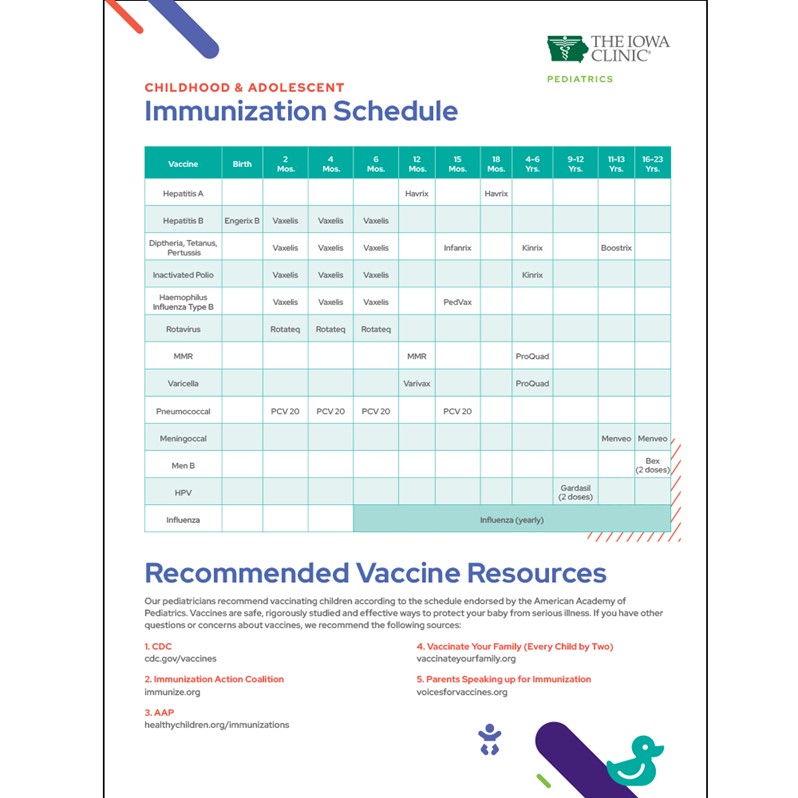Immunizations for Kids and Adults
Immunizations are essential in preventing severe disease. We follow the American Academy of Family Physicians (AAFP) immunization guidelines to keep your children protected and help everyone avoid serious illness, including:
Flu Shots
The dominant strains of Influenza change from year to year, so the makeup of a flu shot changes as well. Unlike other types of immunizations, experts recommend influenza vaccinations every year – especially for vulnerable populations like children and older adults.
We offer flu shots starting in late summer each year and it’s recommended you’re vaccinated by the end of October. You can schedule your flu shot at your Family Medicine clinic or visit our drive-up flu clinic.
Shingles Vaccines
Experts recommend a shingles vaccine for adults 50 and older as your risk of shingles and complications increases with age. Even if you’ve had shingles in the past, vaccination helps prevent you from getting it again. The shingles vaccine contains live, weakened varicella-zoster virus and provides strong protection from shingles and long-term nerve pain.
Experts recommend a shingles vaccine for adults 50 and older as your risk of shingles and complications increases with age. Even if you’ve had shingles in the past, vaccination helps prevent you from getting it again. The shingles vaccine contains live, weakened varicella-zoster virus and provides strong protection from shingles and long-term nerve pain.
Tetanus Shots
Tetanus, or lockjaw, is a serious disease caused by bacteria that affects the nervous system. Tdap and Dtap shots, which contain deactivated tetanus toxins, are both part of child and adult immunization schedules. Experts also recommend tetanus shots any time you have a wound caused by something dirty (like a rusty nail) and it has been more than five years since your last booster.
Pneumonia Vaccines
Pneumonia shots contain the most common infectious types of Streptococcus pneumonia. They immunize patients against pneumococcal disease. Experts recommend vaccination as part of the immunization schedule for children and adults over the age of 65. If you have diabetes, heart problems, COPD or chronic kidney disease, talk to your family doctor about getting pneumonia vaccinations early.
Recommended Vaccination Schedule for Children
Immunization is important at every age, but even more so for children. Young children have underdeveloped immune systems, so exposure to some diseases can be life-threatening. Vaccinations protect your kids from these serious conditions, and everyone around them.
In Iowa, many vaccinations are mandatory. Iowa law requires immunizations for all children attending licensed day care centers, elementary, and secondary schools. Your children must be vaccinated according to the Iowa Department of Public Health immunization schedule.
The chart below outlines which vaccines are recommended at each age. You can find more in-depth information regarding each vaccine, as well as flu shots and vaccinations required for school on our blog, Every Vaccine Your Child Needs from Birth to Graduation.
